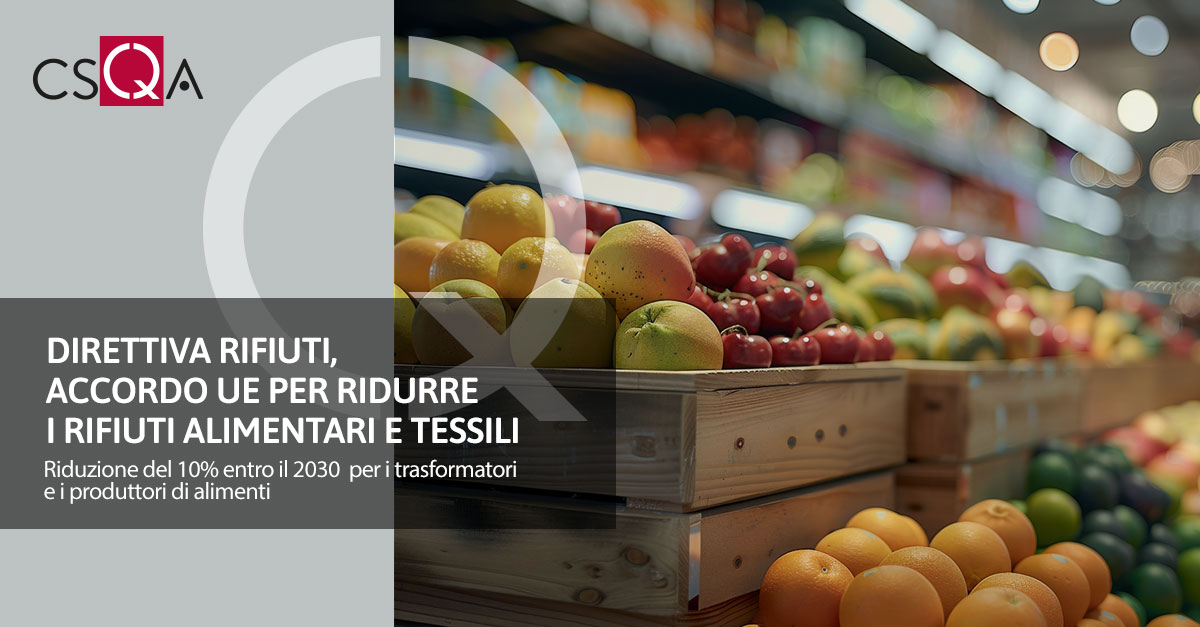 On 19 February 2025, the Parliament and the Council of the European Union reached a provisional agreement on new measures to prevent and reduce food and textile waste across the EU. The agreement needs to be confirmed by both institutions before the formal adoption procedure.
On 19 February 2025, the Parliament and the Council of the European Union reached a provisional agreement on new measures to prevent and reduce food and textile waste across the EU. The agreement needs to be confirmed by both institutions before the formal adoption procedure.Less food waste by 2030
Lawmakers agreed to introduce binding food waste reduction targets to be achieved at national level by 31 December 2030:- 10% reduction in processing and production waste ;
- 30% per capita reduction in waste from retail, restaurants, foodservice and households
Following the Parliament's request, EU countries should take measures to ensure that economic operators who play a significant role in preventing and generating food waste (to be identified in each country) facilitate the donation of unsold food that is safe for human consumption.
The agreement therefore includes the voluntary donation of unsold food as an important aspect of reducing food waste.
New rules on textile waste
The interim agreement also establishes harmonised rules on extended producer responsibility for textile producers and fashion brands .As the Council explains in a note, they will be held responsible for their waste and will be required to pay a fee to help finance waste collection and treatment, which will depend on how circular and sustainable their product design is.
States will also need to address ultra-fast and fast fashion practices to prevent the discarding of textile products before they reach their potential lifespan.
These provisions would apply to all producers, including those using e-commerce tools and regardless of whether they are established in an EU country or outside the EU.
To reduce administrative burdens, microenterprises will have one more year to comply with these obligations after the establishment of the extended producer responsibility schemes (in total, three and a half years after the entry into force of the new rules).
Millions of tons of waste
The picture we are moving in is one of huge numbers both for food waste and for the production of textile waste, often linked to fast fashion and ultra-fast fashion.Every year in the European Union, over 59 million tonnes of food waste are produced, equivalent to 132 kilos per person, for an estimated loss of 132 billion euros.
The EU also generates 12.6 million tonnes of textile waste per year . Clothing and footwear alone account for 5.2 million tonnes of waste, equivalent to 12 kg of waste per person per year. Less than 1% of all textiles are recycled worldwide each year.
Rapporteur Anna Zalewska (ECR, PL) explains: «During the last round of negotiations, Parliament managed to secure provisions that ensure further reduction of food and textile waste as part of municipal waste.
We have succeeded in ensuring feasible and realistic provisions for Member States to implement policies to reduce food waste and we have succeeded in ensuring that the agricultural sector is not negatively impacted.
We have also created the legal framework to ensure that producers contribute to the effective separate collection of the textiles they produce.
We have both succeeded in reducing the administrative burden for Member States and economic operators". (Source: https://www.helpconsumatori.it/ )